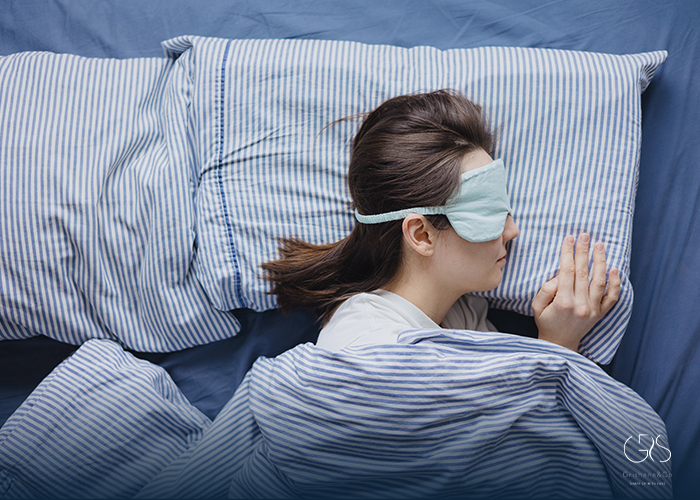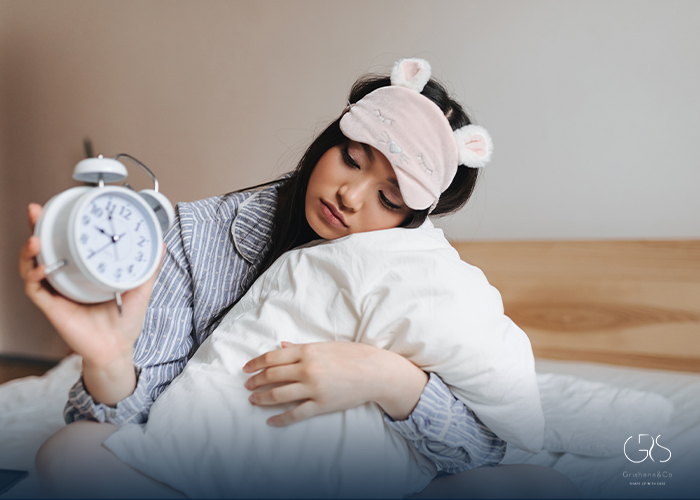In our fast-paced, constantly stimulated world, sleep is often seen as a luxury rather than a necessity. But science continues to unveil powerful evidence on the benefits of napping, a simple and effective tool to improve health, mental performance, and emotional well-being. Whether you’re a student, professional, or parent, understanding how a nap can enhance your daily functioning might be the game-changer you didn’t know you needed.
Boosting cognitive performance: the benefits of napping on brain function
One of the most widely studied and validated aspects of napping is its positive impact on cognitive performance. Research has shown that short naps—typically lasting 10 to 30 minutes—can significantly improve attention, memory, alertness, and learning retention. When you’re sleep-deprived, even a 10-minute nap can restore your ability to focus.
NASA’s famous study on military pilots and astronauts revealed that a 26-minute nap improved alertness by 54% and performance by 34%. These results highlight how powerful a short nap can be, especially for people in high-performance or high-risk jobs. Similarly, research published in the journal Sleep shows that even ultra-short naps of around 6 to 10 minutes offer measurable cognitive benefits.
The benefits of napping also include enhanced memory consolidation, which is essential for learning new information. When you sleep, your brain processes and stores what you’ve learned. A short nap during the day provides a miniature version of this vital brain function, especially effective after studying or acquiring new skills.

Mood and emotional balance: the benefits of napping for your mental state
Beyond sharpening your mind, the benefits of napping extend into your emotional and psychological state. Fatigue can easily lead to irritability, stress, and anxiety. Taking a nap can act as an emotional reset, providing calm and relaxation even in the middle of a chaotic day.
In a study conducted by the University of Michigan, participants who napped for 60 minutes had significantly higher levels of emotional regulation and frustration tolerance than those who didn’t nap. This is likely linked to the brain’s limbic system—particularly the amygdala—which processes emotions and is regulated by rest and sleep.
Regular napping may also help combat symptoms of mild depression or mood instability. By providing a break in the day and an opportunity to lower cortisol (the stress hormone), naps help promote emotional resilience.
(I suggest reading our article about signs and symptoms of depression.)
The benefits of napping on heart health and physical well-being
Napping isn’t just a brain booster—it also supports physical health, particularly cardiovascular health. According to a Swiss study published in Heart, people who took one or two naps per week had a lower risk of heart attacks and strokes compared to those who never napped. The study followed over 3,000 participants for five years, revealing that moderate, consistent naps can protect long-term heart function.
Short naps under 30 minutes are associated with reduced blood pressure, enhanced autonomic nervous system balance, and lowered inflammation levels. These effects may be attributed to the body’s ability to recover from daily stress during rest periods.
On the flip side, excessively long naps—over 60 minutes—have been associated in some studies with increased risks of metabolic syndrome, obesity, and diabetes. But it’s important to understand that these findings often point to underlying sleep disorders or unhealthy nighttime sleep habits, rather than the naps themselves being the cause.
Still, when practiced in moderation, the benefits of napping can offer a powerful protective buffer for your heart and general well-being.

How long should you nap? Maximizing the benefits of napping through timing
Timing is everything when it comes to napping. To maximize the benefits of napping, the duration and time of day are critical. The ideal nap length is generally 10 to 30 minutes. This keeps you in the lighter stages of non-REM sleep, allowing you to wake up refreshed rather than groggy.
Naps longer than 30–45 minutes often enter deep sleep (slow-wave sleep), which can result in sleep inertia—that heavy, disoriented feeling after waking up. However, 90-minute naps can be useful as they allow for a full sleep cycle, making them beneficial for people who are sleep-deprived or trying to compensate for missed sleep.
The best time to nap is typically early to mid-afternoon, between 1:00 and 3:00 p.m., when the body naturally experiences a dip in alertness and energy. Napping too late in the day, such as after 5:00 p.m., can disrupt nighttime sleep and throw off your circadian rhythm.
By aligning nap duration and timing with your body’s natural rhythm, you can consistently unlock the benefits of napping without any drawbacks.
Brain preservation and aging: long-term benefits of napping
Emerging research suggests that habitual napping may also support long-term brain health. A 2023 study published in Sleep Health found that people who nap regularly have larger total brain volumes than those who don’t, which could help delay age-related cognitive decline.
Neurodegenerative diseases like Alzheimer’s and dementia have been linked to poor sleep quality and disruptions in circadian rhythm. While napping is not a cure, it may help maintain mental sharpness and protect cognitive function with age.
Older adults often experience fragmented sleep at night. A short nap during the day can compensate for this and help maintain overall restfulness without interfering with nighttime sleep—when managed properly.
This underscores another reason why the benefits of napping should be embraced as part of a long-term health strategy, not just as a quick fix.
Enhancing creativity, problem-solving, and focus
Napping has also been shown to boost creativity and innovation. According to a study from the University of California, Berkeley, napping helps clear the brain’s short-term memory storage, making room for new ideas and connections. Subjects who napped before a creative problem-solving test performed significantly better than those who stayed awake.
These effects are especially important for professionals in creative or analytical fields, where mental flexibility is essential. The benefits of napping in these contexts include not just more energy, but more mental space and agility.
Even athletes and performers benefit from strategic naps. Studies have shown that alertness, reaction time, and decision-making improve following brief naps, particularly for those engaged in physically and mentally demanding activities.
The benefits of napping for shift workers and sleep-deprived individuals
Not everyone has a 9-to-5 lifestyle. For shift workers, emergency responders, healthcare professionals, or parents of newborns, naps are often not just helpful but essential. In such cases, napping serves as a critical tool to combat sleep deprivation.
A 2006 study published in the Journal of Occupational Health Psychology showed that night-shift workers who took a 30-minute nap during their shift had significantly better cognitive performance and mood compared to those who stayed awake.
The strategic use of naps can improve overall functioning, reduce errors, and protect long-term health in people who don’t get consistent night sleep. While they don’t replace full nighttime sleep, naps can partially restore lost energy and alertness—acting as a necessary adaptation tool in modern lifestyles.
Myths, risks, and when to avoid napping
Despite the overwhelming evidence on the benefits of napping, some people experience negative effects, particularly if they nap too long, too late in the day, or have undiagnosed sleep disorders.
Sleep inertia, as mentioned earlier, is the main drawback of poorly timed naps. People who consistently feel groggy or more tired after napping should shorten their nap length or avoid entering deep sleep phases. If grogginess persists even after short naps, it may be worth consulting a healthcare provider to check for underlying conditions like sleep apnea or insomnia.
It’s also a myth that only lazy or unmotivated people nap. In fact, some of the world’s most productive individuals—including Albert Einstein, Winston Churchill, and Leonardo da Vinci—were known for their strategic use of napping to enhance productivity.
Understanding your body and experimenting with what nap duration and timing works for you is the best approach to avoid the downsides and gain all the benefits of napping.
How to nap like a pro
To get the most out of your nap, follow these practical tips:
Keep it short: Stick to 10–30 minutes unless you’re catching up on lost sleep.
Nap early: Aim for naps before 3:00 p.m. to avoid nighttime disruption.
Create a restful space: Use a quiet, dark environment or a sleep mask and noise-canceling headphones.
Use guided meditation or relaxation: Apps and audio tracks can help you fall asleep faster.
Try a caffeine nap: Drink a cup of coffee right before a short nap. By the time you wake up, the caffeine kicks in, boosting alertness.
Consistency is key. As with exercise or nutrition, regularly incorporating naps into your lifestyle brings cumulative benefits over time.
Conclusion
The science is clear: the benefits of napping go far beyond feeling rested. From enhancing cognitive function and mood to protecting your heart and improving creativity, naps are a simple, accessible, and powerful way to improve health and performance. The key is to nap strategically—keeping it short, early in the day, and consistent.
In a world that often glorifies constant hustle and overwork, allowing yourself the gift of a nap might be one of the most productive decisions you can make. Start small, listen to your body, and embrace napping as part of your wellness toolkit.
Sources
- SCIENTIFIC AMERICAN, Short Naps Have Major Benefits for Your Mind
- Harvard Health Publishing, Can a quick snooze help with energy and focus? The science behind power naps
- National Sleep Foundatio, The Benefits of Napping
- Mayo Clinic, Napping: Do's and don'ts for F adults
- Time Magazine, How to Take the Perfect Nap










